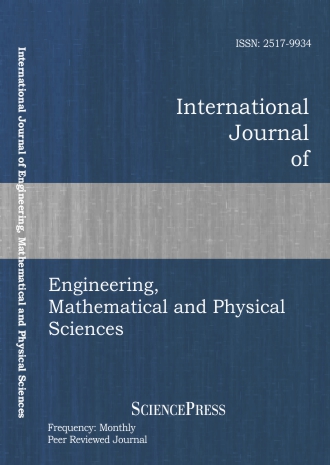
Scholarly
Volume:3, Issue: 11, 2009 Page No: 916 - 919
International Journal of Engineering, Mathematical and Physical Sciences
ISSN: 2517-9934
812 Downloads
Quadratic Irrationals, Quadratic Ideals and Indefinite Quadratic Forms II
Let D = 1 be a positive non-square integer and let δ = √D or 1+√D 2 be a real quadratic irrational with trace t =δ + δ and norm n = δδ. Let γ = P+δ Q be a quadratic irrational for positive integers P and Q. Given a quadratic irrational γ, there exist a quadratic ideal Iγ = [Q, δ + P] and an indefinite quadratic form Fγ(x, y) = Q(x−γy)(x−γy) of discriminant Δ = t
2−4n. In the first section, we give some preliminaries form binary quadratic forms, quadratic irrationals and quadratic ideals. In the second section, we obtain some results on γ, Iγ and Fγ for some specific values of Q and P.
Authors:
References:
[1] R.A. Mollin. Quadratics. CRS Press, Boca Raton, New York, London,